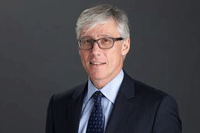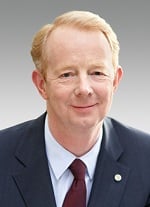FiercePharmaAsia combs earnings calls by major drug companies for notable and quotable nuggets on emerging markets and Asia to track the latest sales trends and insight into business outlooks in markets as diverse as China, India and Japan to Southeast Asia.
For the first quarter of the year, see remarks by top executives from Bayer, Sanofi ($SNY) and Bristol-Myers Squibb ($BMY), with just GlaxoSmithKline ($GSK) to come before wrapping up our list for the first quarter.
Sanofi
 |
| Sanofi CEO Olivier Brandicourt |
Olivier Brandicourt, CEO of Sanofi, heads to Asia this month with stops in China and Japan as the executive laid down priorities just four weeks into the job on the April 30 first quarter earnings call.
"I'll be in China and Japan next month, and I want to go deep into the organization to learn more about our people, processes and capabilities because I want to understand the challenges and opportunities laying ahead," Brandicourt said.
"I will also lead the Company through a strategic review of its businesses, which is already underway in parallel."
Indeed, he said that process is already underway with leadership teams in Europe and in the U.S., "in particular across the commercial pharma organization, Genzyme and R&D."
Of particular interest for Asia are roll-out plans at the public health level for a dengue vaccine that has a high-stakes manufacturing and approval strategy.
"I'm also proud to see Sanofi Pasteur at the leading edge of making dengue the next preventable disease through our vaccination," Brandicourt said.
"We have now expanded our rolling submissions into endemic countries in Latin America, and we anticipate the first licenses to be granted in countries in Asia and Latin America in the second half of 2015. The current dengue fever outbreak in Brazil reminds us of the significant unmet need we are targeting with this vaccine."
He then let Jerome Contamine, executive vice president and chief financial officer, discuss some of the hard numbers, noting generic competition for Taxotere, mainly in Japan, but also in some emerging countries that pushed oncology sales down 7.3% in constant exchange rates.
However, overall established product sales in emerging markets reached about €1.1 billion, up 9% in the quarter, Contamine said, though he added a cautionary note.
"Please note that we expect generic versions of Plavix to enter the market in Japan as of mid-2015."
Sanofi has one-third of its business in emerging markets, which overall were up 7.3% at constant currencies in the first quarter.
"All sub regions of emerging markets delivered positive growth during the quarter," Contamine said.
"In Venezuela, consumer buying patterns resulted in a significant phasing of sales in the quarter, in the first quarter. This is expected to reverse in the remaining quarters of the year. Sales in Venezuela were €200m in the first quarter of 2015, versus €66m in the same period of 2014."
But it was Contamine's remarks on vaccines that caught attention and show how crucial it is to get the dengue rollout right.
Lower sales of influenza vaccines in emerging markets saw €20 million in the first quarter of 2015, compared to €105 million in the same period of 2014.
"Please keep in mind that in the second quarter of 2015 the Butantan Institute in Brazil will start to supply a significant part of the Brazilian flu market as a result of the technology transfer agreement which Sanofi Pasteur initiated 15 years ago," Contamine said.
"Sanofi Pasteur will continue to contribute to the Brazilian flu market, but to a lower extent."
"Now, looking at the full year 2015 and excluding dengue vaccine sales, Sanofi Pasteur expects the yearly sales growth to be in the same range as last year."
Bayer
 |
| Bayer CEO Marijn Dekkers |
Brandicourt's former colleague, Marijn Dekkers, chairman and CEO at Bayer, did not spend a lot of time on the April 30 call talking about China. Instead, he discussed the white-hot prospects for Xarelto as it built its leading position worldwide with market gains in the anticoagulant space.
"These gains translated into sales growing globally at 38% with all regions contributing," Dekker said, adding, as reported, that performance led to "raising our guidance and now expect for 2015 Xarelto to grow 30%, a significant increase from our previous estimate of 20%"
But it was Werner Baumann, chief strategy and portfolio officer, filled in some of the details on the performance abroad.
"We have mentioned that I think also in one of our last quarterly calls that we had been working specifically in Japan on improved execution," Baumann said.
"We see signs of the improvement in execution there, which translate in sales performance. And last but not least, in terms value proposition."
Bauman also spoke a bit about the emerging market integration of the Merck ($MRK) consumer health assets it bought last year.
"We see good early signs of traction in Brazil just as an example and we actually will plow along as the year progresses in doing that in other markets as well," he said.
Bristol-Myers Squibb
 |
| BMS COO Giovanni Caforio |
Finally, the April 28 swan song of Lamberto Andreotti, Bristol-Myers Squibb's outgoing CEO, was short and to the point in a hand over that saw Giovanni Caforio, chief operating officer and CEO-designate, handle questions along with the management team.
The focus outside of the U.S. was in Japan where Bristol-Myers Squibb was the first to market a next-gen hepatitis C treatment. The BMS combo--the NS5A inhibitor Daklinza (daclatasvir) and the NS3/4A protease inhibitor Sunvepra (asunaprevir)--has been on the market in Japan since last fall, though the company pulled the combination from consideration by the FDA.
"Regarding Hepatitis C, global sales were strong at $264 million, primarily driven by the performance of our Daklinza/Sunvepra combination regimen in Japan," Caforio said.
Meanwhile, Francis Cuss, chief scientific officer, then gave a few more details about sales in Nippon.
"From the perspective HCV Japan let me say the performance has been really strong," Cuss said.
"Our dual regimen Sunvepra/Daklinza we launched in the middle of last year. When we describe the opportunity there remember there's about a 1.2 million patients with HCV, with Hepatitis C, in Japan. Of that 70% are genotype IB. And we decided to focus initially on the approximately 150,000 patients that are in the healthcare system actively seeking treatment. We've seen a really strong commercial execution in Japan. We've seen rapid uptake, and as you've mentioned we had approximately $200 million in sales in Japan in the first quarter."
"When we look at our penetration in terms of our share of the more recent oral regimens, we of the vast majority of the patients there. The largest share we have is in the subset of 150 patients I described before, but we've seen some uptake with new patients coming into the treatment in Japan as well."
That may be bittersweet news to AbbVie ($ABBV), which in February asked Japanese regulators to approve its antiviral cocktail, hoping to grab a piece of that market as it fights for share in the States.
AbbVie's application to the Japanese Ministry of Health, Labor and Welfare is based on a Phase III study dubbed GIFT-I, which focused on patients with genotype 1b chronic hepatitis C. The regimen tested was 12 weeks of a three-drug cocktail, including two direct-acting antivirals.
- here are the releases from BMS, Sanofi and Bayer